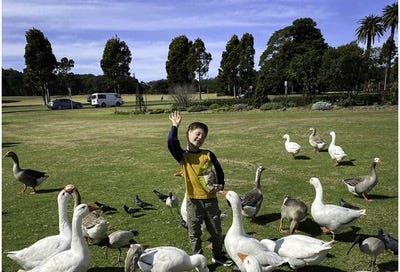The Catholic church is certainly not the oldest faith group in the world. That honour belongs to Indigenous cultures. Even Hinduism with 4000 years of tradition is a baby when compared, for example, to First Nations spirituality in Australia whose stories and Dreaming extend to 60,000 years or more of care for land, one another, and ancestral spirits.
If not the oldest, though, the Catholic church is the world’s largest religious collective. And its potential to influence worldly events remains great, for better or for worse.
Those who have viewed the fascinating, intelligent new movie, Conclave, will know that the tussle is serious and consequential when a new Pope is about to be elected. It makes clear that the reverberations go way beyond the 1.376 billion nominal or practising Catholics in our world.
The differences are profound between those who wish to keep the vast Catholic Church in the 19th-century (or the Dark Ages, in some cases), with male priestly power fully intact and an indefensible obsession with what they define as “sexual sins” rather than the ethical travesties of violence, abuse, war and war-mongering, and those who wish to follow and expand the far more inclusive 21st-century path of Pope Francis.
The irony is that if the hyper-conservatives win, their “victory” will be pyrrhic.
No Western nation will be exempt from even more rapidly emptying churches, and an unprecedented scarcity of home-grown priests. In other words, even as the worldly power of a patriarchal church is emphasised or further entrenched, the collective spiritual power of the church would be radically diminished.
"This was the very purpose of creation that each unique, individual being should participate in its own way in the divine Being, should realise its eternal 'idea' in God, should 'become' God by participation, God expressing himself through that unique being." ~
Dom Bede Griffiths, Benedictine priest & writer, including The Marriage of East and West
Spiritual power is present in every human being regardless of race, sexuality, or gender. How this power is experienced - nurtured, used - is a matter of character and conscience.
The early "church" - not yet a church in any formal sense - met in homes, where women played leadership roles sometimes even greater than those of men (whose domain was "public"). Women are also credited in the Christian scriptures as being “last at the cross and first at the tomb”; their contribution to the radically inclusive, people-centered ministry of Jesus plain to see.
A Catholic church that maintains its gender apartheid is doomed on many fronts. Tragically, because the Franciscan model practised by Jesuit-trained Francis, that went at least some way toward honouring women, that explicitly supported protecting the environment, and that centred on the mystery of deeply contemplative spirituality combined with social justice activism, could and would continue to offer much to our spiritually impoverished world.
"This is criterion by which the Church is to be judged, not by the forms of its doctrine or ritual, but by the reality of the reality of the love which it manifests."
Dom Bede Griffiths
(A personal note. At the age of nine, following the death of my beloved mother a year earlier, I “became” a Catholic - though from my late teens my interest in religion extended to a study of all faiths, and experiencing of many. After years of leading spiritual retreats - including for Catholic groups - I was ordained in 2005 as an Interfaith minister at the Cathedral of St John the Divine in NYC.
Finding not just “common ground” or values between different faiths and cultures, but also the basis for far greater understanding and respect, is central to my peace activism and my writing. Perhaps best exemplified in Seeking the Sacred: Transforming Our View of Ourselves and One Another, plus Heaven on Earth: Timeless Prayers of Wisdom and Love.). Your comments welcome.




Thank you Stephanie for holding this up at this time, truly another watershed moment in these challenging times.